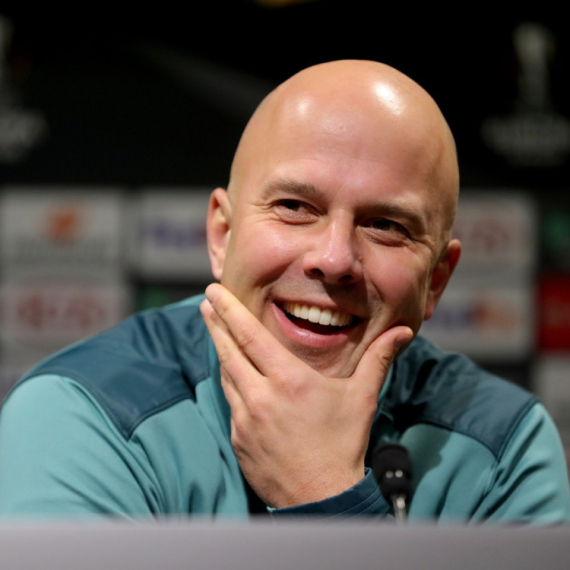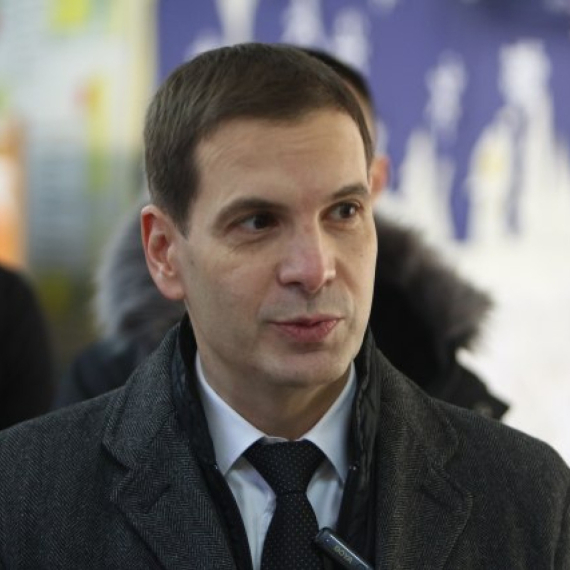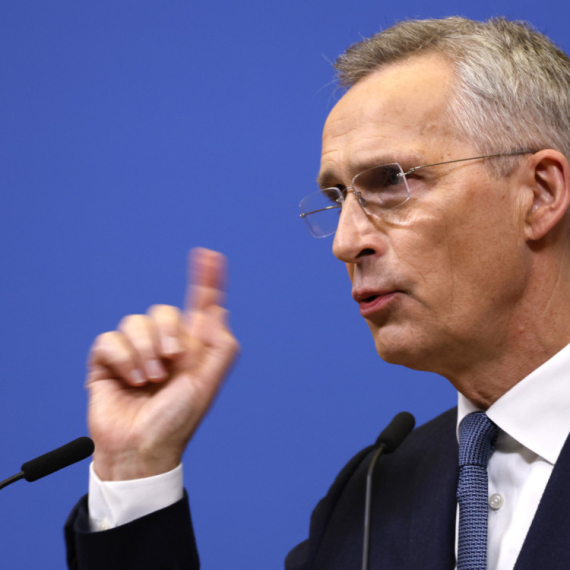Speaker praises parliament's role in EU integrations
Parliament Speaker Slavica Đukić-Dejanović said on Monday that the Serbian parliament was a "champion of EU integrations".
Monday, 30.01.2012.
14:52

Parliament Speaker Slavica Djukic-Dejanovic said on Monday that the Serbian parliament was a "champion of EU integrations". This is because of the laws that had been adopted, she said at the opening of a public debate held in Belgrade under the title, " Parliament on the Path of EU Integration". Speaker praises parliament's role in EU integrations "Most activities were directed to adapting Serbia's legal system to the system of the community we see as our family and to provide the people with the life that system enables," she stated. Commenting on what the parliament faces in EU integration, Djukic-Dejanovic said that when the Stabilization and Association Agreement enters into force, parliament will form a joint committee with the European Parliament. EU integration committee chairman Laslo Varga, who organized the gathering, said it had two goals: to review the experience of the current parliament now that it nears the end of its term and to evaluate the results and set guidelines for the next term. Head of the government office for EU integration Milica Delevic stated that the EU is Serbia's greatest investor, donor and partner. The EU is still Serbia's greatest trade partner, involved in 56 percent of the country's trade, Delevic noted. The agreements signed with the EU benefit Serbian companies, as they get to keep EUR 562 million they would otherwise pay as customs fees, while EU companies save EUR 214 million, she stated. Serbia received EUR 2.2 billion from the EU since the start of the transition. The Serbian people also benefited from EU integration, she remarked. From the introduction of the visa liberalization, there was an increase of over a million in the number of border crossings in 2011 compared to 2009, she stated. The most important thing now is to complete Serbia's obligations from December last year, she concluded. Head of the EU Delegation to Serbia Vincent Degert said he expected Serbia to meet the requirements needed for EU candidate status in 2012. Explaining the events of December 9, when the decision on whether to grant Serbia the status was postponed until March, he said all the members agreed there had been progress and concluded it should continue and include the talks between Belgrade and Pristina. The EU wants to see the implementation of the agreements already reached, further progress in regional cooperation and for EULEX and KFOR to be able to do their job throughout Kosovo, Degert noted. It is also important to continue with the reforms already started, like the fight against corruption, media reform, judiciary reform and the efforts to raise the economy's competitiveness, he said. Those are all very difficult reforms, but the EU will help Serbia complete them, Degert pointed out. (Tanjug) Tanjug
Speaker praises parliament's role in EU integrations
"Most activities were directed to adapting Serbia's legal system to the system of the community we see as our family and to provide the people with the life that system enables," she stated.Commenting on what the parliament faces in EU integration, Đukić-Dejanović said that when the Stabilization and Association Agreement enters into force, parliament will form a joint committee with the European Parliament.
EU integration committee chairman Laslo Varga, who organized the gathering, said it had two goals: to review the experience of the current parliament now that it nears the end of its term and to evaluate the results and set guidelines for the next term.
Head of the government office for EU integration Milica Delević stated that the EU is Serbia's greatest investor, donor and partner.
The EU is still Serbia's greatest trade partner, involved in 56 percent of the country's trade, Delević noted. The agreements signed with the EU benefit Serbian companies, as they get to keep EUR 562 million they would otherwise pay as customs fees, while EU companies save EUR 214 million, she stated.
Serbia received EUR 2.2 billion from the EU since the start of the transition.
The Serbian people also benefited from EU integration, she remarked.
From the introduction of the visa liberalization, there was an increase of over a million in the number of border crossings in 2011 compared to 2009, she stated.
The most important thing now is to complete Serbia's obligations from December last year, she concluded.
Head of the EU Delegation to Serbia Vincent Degert said he expected Serbia to meet the requirements needed for EU candidate status in 2012.
Explaining the events of December 9, when the decision on whether to grant Serbia the status was postponed until March, he said all the members agreed there had been progress and concluded it should continue and include the talks between Belgrade and Pristina.
The EU wants to see the implementation of the agreements already reached, further progress in regional cooperation and for EULEX and KFOR to be able to do their job throughout Kosovo, Degert noted.
It is also important to continue with the reforms already started, like the fight against corruption, media reform, judiciary reform and the efforts to raise the economy's competitiveness, he said.
Those are all very difficult reforms, but the EU will help Serbia complete them, Degert pointed out.





















































Komentari 1
Pogledaj komentare